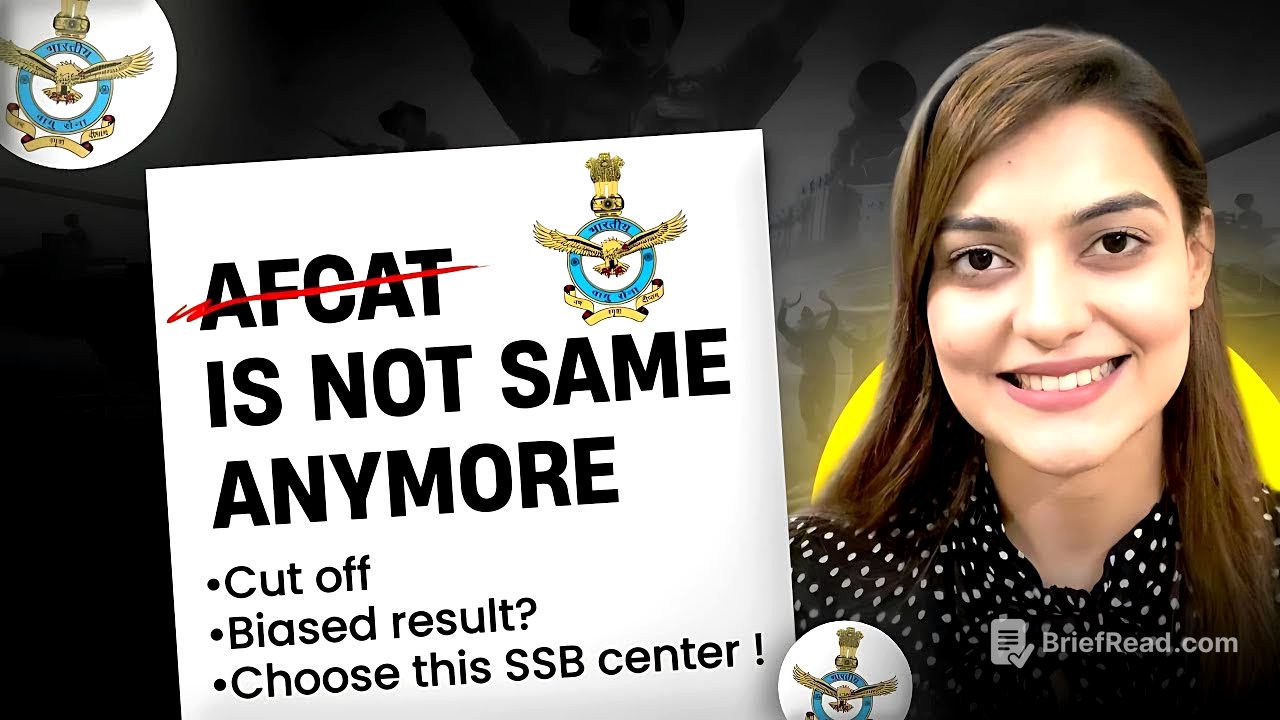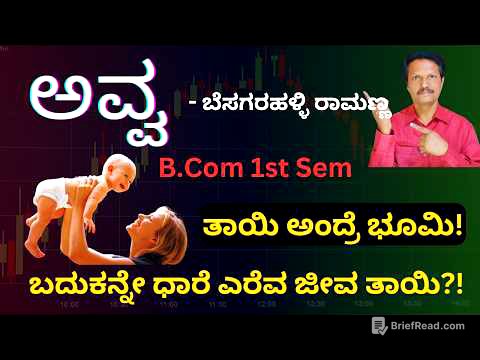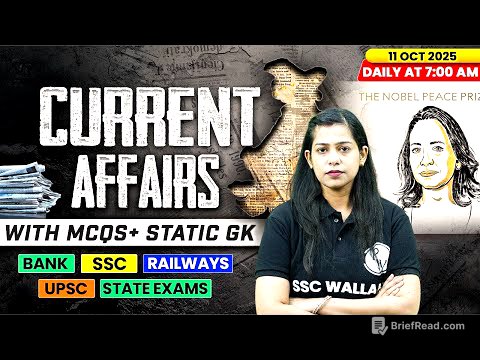TLDR;
This video addresses common doubts and questions from candidates who appeared for the AFCAT exam, whether they cleared it or not. It covers topics such as perceived bias in results, variable cut-offs, the importance of SSB scores, strategies for those who didn't clear the exam, SSB center selection, and preparation tips. The speaker emphasizes the importance of a balanced approach to preparation, focusing on both written exams and personality development for SSB.
- Exam results and cut-off analysis
- SSB preparation and center selection
- Strategy for those who didn't clear the exam
Addressing Biased Results and Cut-off Variations [2:22]
The speaker addresses concerns about biased results, particularly regarding technical entries. Selections are based on the specific requirements for ground duty, technical, and flying entries. Separate cut-offs may be set to fill the required number of seats in each category. Candidates with B.Tech degrees may face less competition. Those who scored between 110 and 140 will be at the bottom of the merit list. The cut-off varies each time because the paper comes out a little different every time.
Merit, Variable Cut-offs, and Re-attempt Strategies [3:55]
The speaker discusses the importance of scoring 200+ marks for ground duty entries to ensure a higher chance of making it through SSB. The cut-off varies depending on the difficulty level of the exam each time. For those who didn't clear the exam, the speaker emphasizes that it may be due to a wrong strategy or disproportionate time allocation to subjects. The speaker advises candidates to identify their weaknesses by analyzing the AFCAT results and focusing on improving those areas.
Sukhoi Batch and the Importance of SSB [8:05]
The speaker introduces the Sukhoi batch for focused preparation and highlights the effectiveness of the Last Minute Revise (LMR) module. The speaker emphasizes the importance of attending SSB, even with low written exam scores, as SSB performance can significantly impact the final merit list. Skipping SSB can negatively impact future attempts.
SSB Center Selection and Preparation [9:30]
The speaker debunks the myth that certain SSB centers have higher selection rates, emphasizing that officer-like qualities are key to recommendation. The personality represented in psychology, ground tasks, and interviews should match the real personality. SSB preparation should be a balanced approach that includes hobbies, physical fitness, and good personal relationships.
Personality Development and SSB Preparation Tips [11:30]
The speaker highlights the importance of social skills, physical fitness, mental stability, and emotional well-being for SSB. Candidates should involve themselves in hobbies, increase their stamina, and cultivate good relationships with family and friends. The speaker advises against writing unrealistic stories in TAT and emphasizes the importance of reading newspapers to improve TAT and WAT responses.
Guidance and Courses for SSB [15:31]
The speaker discusses the courses designed to address basic doubts and provides guidance on screening, psychology, and personal interviews. The speaker introduces a personal guidance batch with limited seats, offering personalized guidance for SSB preparation. The speaker assures continued support through Telegram, YouTube, and free initiatives.








![[LIVE] Kajian Muslimah: Tipe Perempuan dalam Al-Qur'an - Ustadz Adi Hidayat](https://wm-img.halpindev.com/p-briefread_c-10_b-10/urlb/aHR0cDovL2ltZy55b3V0dWJlLmNvbS92aS9JMDJzY0k0Y0l3WS9ocWRlZmF1bHQuanBn.jpg)
